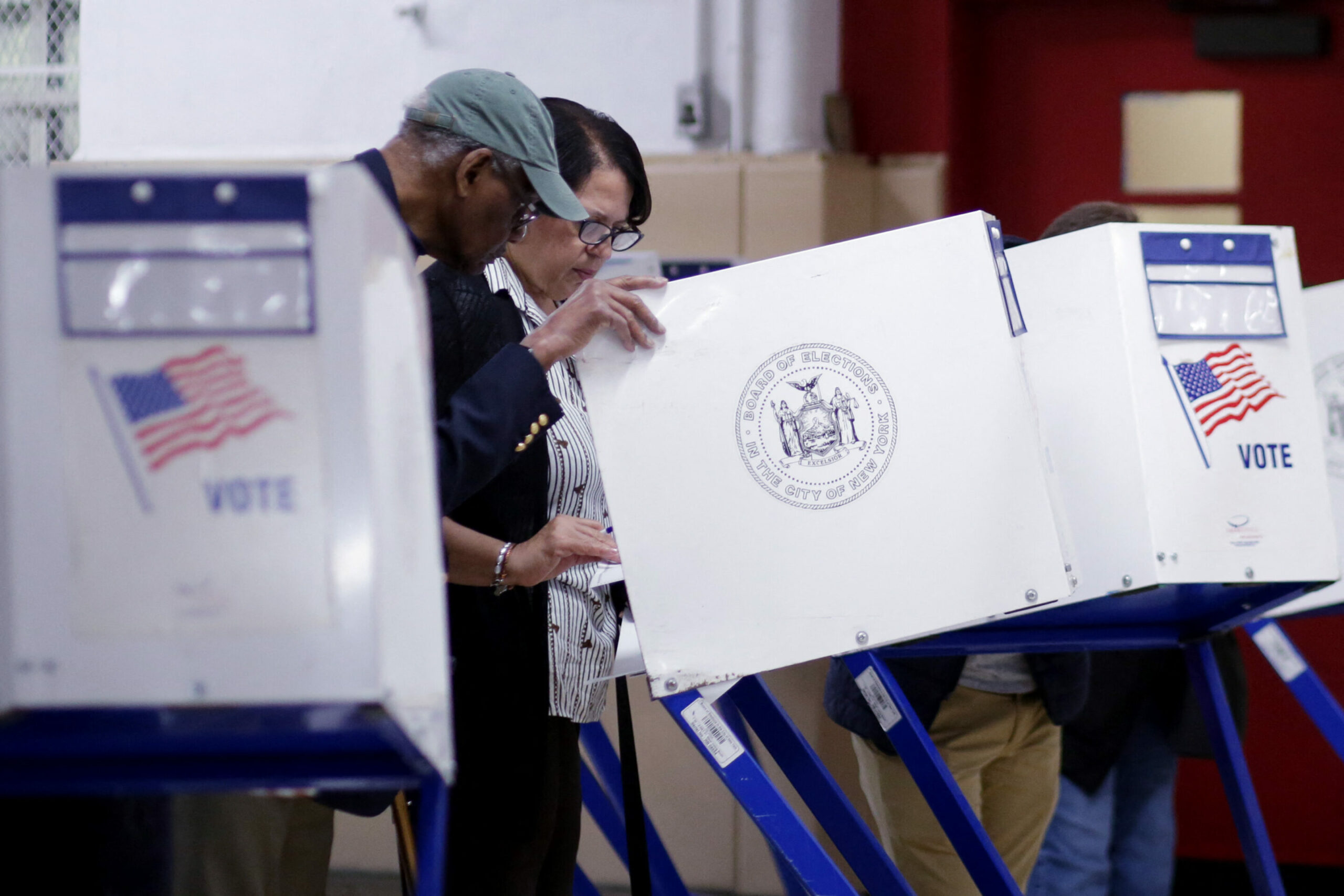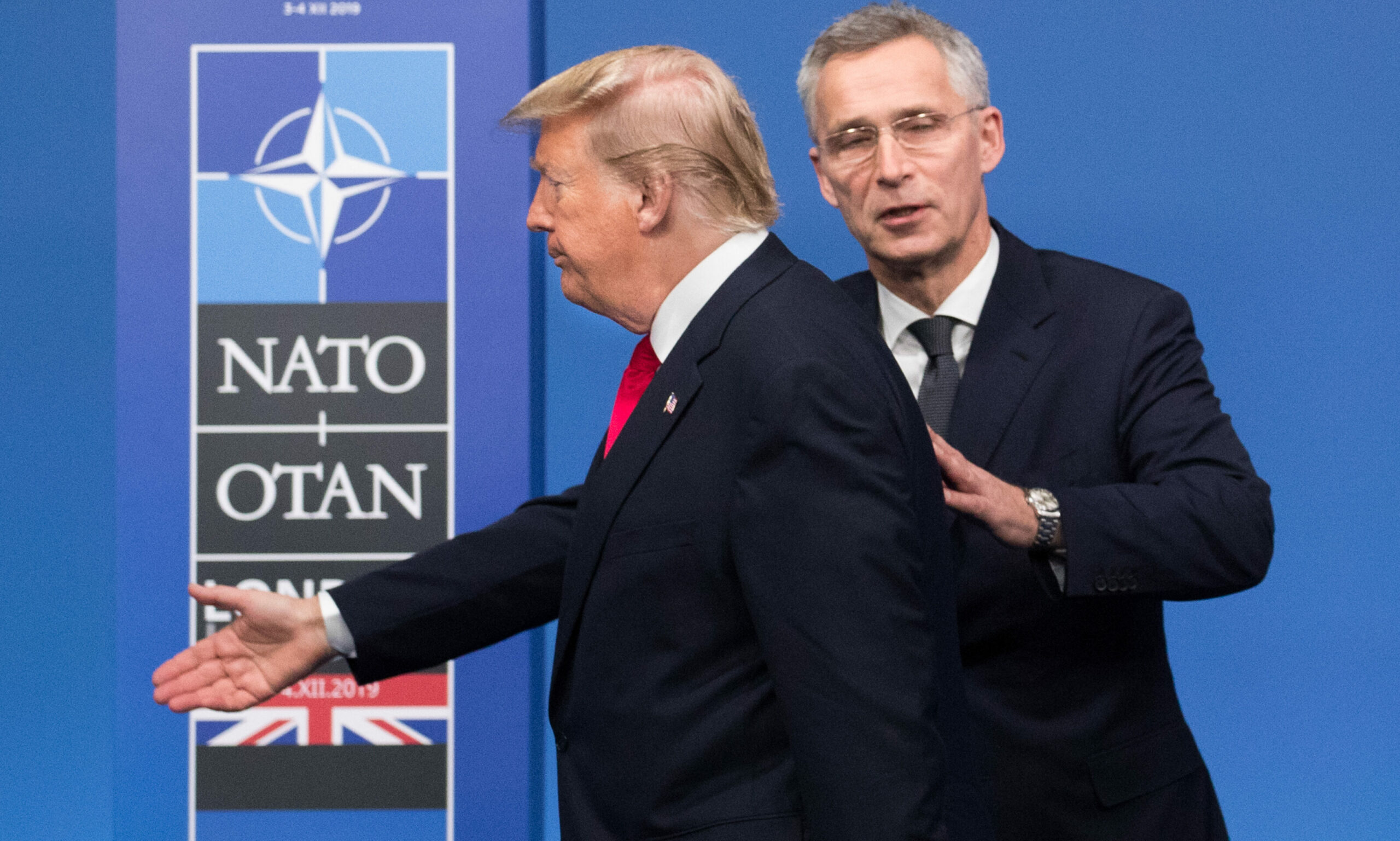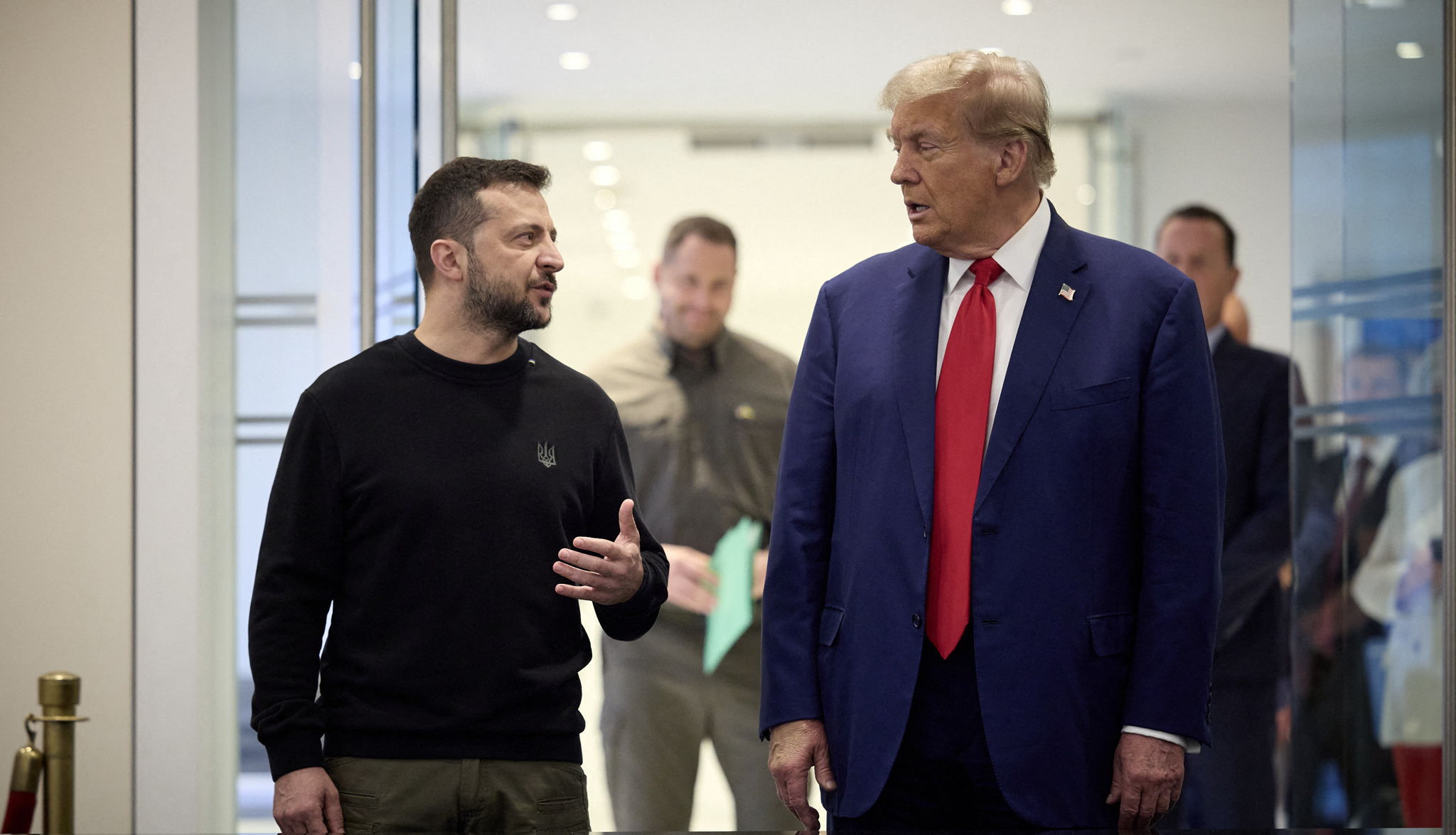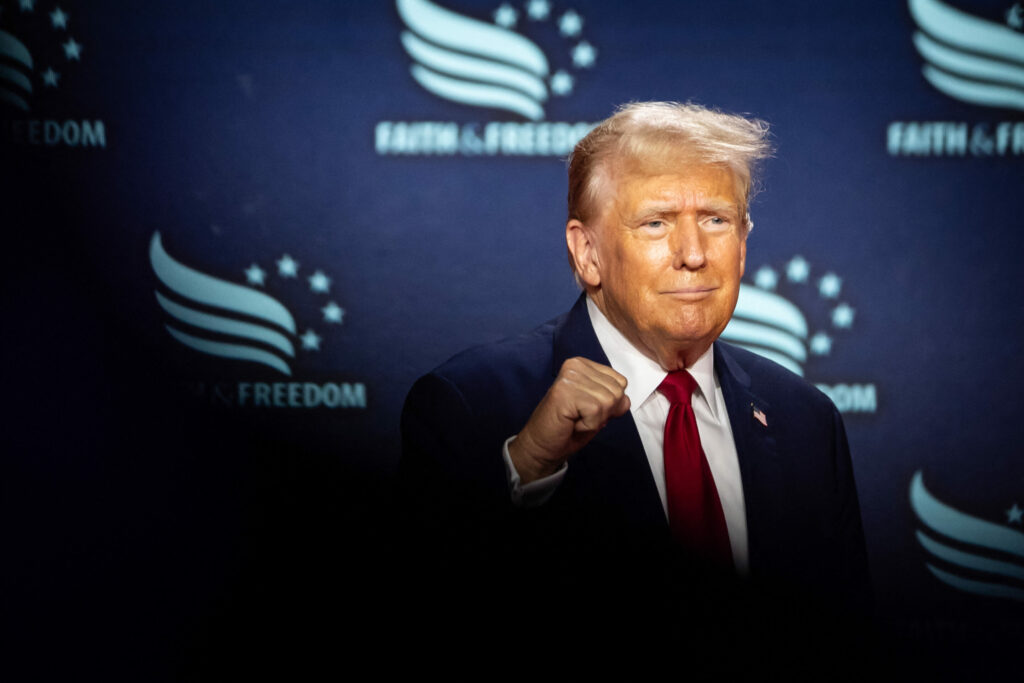Donald Trump completed the "greatest political comeback of all time" in Tuesday night's US election, but how will the incoming US President's victory affect Europe and the wider world?
The Republican candidate defeated Democrat candidate Kamala Harris, to become the 47th President of the United States.
After his first term, this is not uncharted territory. But from the economy to Ukraine and the far-right, Trump’s re-election will no doubt have implications for the old continent and beyond.
European Union
On Wednesday morning, the President of the European Commission, Ursula von der Leyen, "warmly" congratulated Donald Trump, emphasising the importance of the transatlantic agenda, which "unites 800 million citizens" on both sides of the Atlantic Ocean.
Some argue a second Trump presidency could shake Europe's strategic autonomy agenda into action, notably on essential digital services, but they will also face renewed lobbying by the United States and its companies to weaken the EU’s regulatory infrastructure.
Trump’s close relationship with Elon Musk could spell trouble for EU regulators, and the Digital Services Act (DSA). The two powerful pro-deregulation voices will challenge European efforts to ensure a level playing field when it comes to countering the market dominance of US tech in Europe.
From Orbàn to Giorgia Meloni, Trump’s win will also return a powerful ally to the European far-right. Since Trump's election in 2016, far-right parties have seen electoral gains in most European countries – often viewing the convicted US President as a flag-bearer on immigration, and more recently, on ending support for Ukraine.
Economy
Trump's 'America First' policy will likely pit US interests against European ones. His economic plans include higher tariffs, deregulation, more oil drilling and forcing increased defence spending for NATO members.
European stock markets did open higher on Wednesday. However the US president’s penchant for instrumentalising tariffs could also bring about a major shock to the European economy. Imposing tariffs on Chinese imports will likely have a knock-on effect in Europe. China could look to Europe to make up any losses.

People vote at a polling station in New York City on Election Day, November 5, 2024. Credit: Belga / Leonardo Munoz / AFP
According to Samy Chaar, Chief Economist at Swiss private bank Lombard Odier Group who spoke to La Libre, continuing "America First" will involve permanently extending tax cuts, regulating immigration and increasing customs duties.
"There is talk of tariffs of 60% for China and 10% for certain European countries. But they could be lower than anticipated, because Trump will want his counterparts to buy more American products, a positive factor for the USA," Chaar said.
NATO
Donald Trump’s belligerent attitude on defence spending will worry European capitals again. He threatened to leave the military alliance in 2018, arguably as a way of pressuring European nations to pay the agreed 2% of GDP defence contributions.
New NATO Secretary-General Mark Rutte was dubbed the Trump Whisperer during his time as Dutch Prime Minister, because he enjoyed a good relationship with the American president. Many suggest his appointment was largely driven by this.

NATO Secretary General Jens Stoltenberg and US President Donald Trump pictured ahead of a summit of the NATO military alliance in London, United Kingdom, Wednesday 04 December 2019. Credit: Belga / Benoit Doppagne
However, in February, Trump threatened that, if re-elected, he would cease to defend NATO countries that are behind on their payments, even daring to "encourage" Russia to attack them. Outgoing Belgian Defence Minister Ludivine Dedonder argued: "Mr Trump often makes outrageous statements of this nature," suggesting this could be another empty threat aimed at getting countries to increase their contributions.
Ironically Belgium, where NATO has its headquarters, is currently the second-lowest defence spender among members, having spent just 1.1% of its GDP this year. In July 2023, Belgian Prime Minister Alexander De Croo committed to 2% GDP defence spending at the NATO summit in Madrid, however this will now rest with the new government.
Trump’s election will only increase the budgetary pressures being felt in Belgium, particularly in light of the ongoing government negotiations.
Ukraine war
Trump’s election will undoubtedly impact the war in Ukraine, particularly now that the US senate is also controlled by Republicans.
In March, Trump pressured Republican officials in Congress to nullify a bill proposing new aid for Ukraine. He has said he will end the war "in 24 hours". This would be favourable to Russia, by giving it desired territorial gains in the east and the Crimean peninsula.
Throughout the campaign, both Trump and his running mate JD Vance cast doubt on US support for Ukraine. Until Trump takes office, Democrats have vowed to continue supporting Kyiv but the outlook is bleak for embattled Ukrainians, where the military situation on the ground remains difficult due to a lack of manpower and equipment. Trump has also said he would reject Ukraine membership of NATO.

Ukrainian President Volodymyr Zelenskyy speaks to Donald Trump. Credit: Belga|
President Volodymyr Zelenskyy is hopeful he can tap into his diplomatic skills to maintain a good relationship with the incoming president. In late October, the Ukrainian president said that: "Trump talks a lot, but I didn’t hear him say he would reduce support for Ukraine." However, he also acknowledged that a Trump presidency could result in Russia seizing more Ukrainian territory.
"I know he fully understands that this war in Ukraine is not only about Ukraine, but also about the security and future security of the United States," NATO chief Rutte said last month.
The Middle East crisis
The Trump win will also be felt in Gaza and the Middle East. A reinforced pro-Israeli policy could weaken the provision of humanitarian aid to Palestinians and push the chances of any diplomatic solution further away.
He enjoys a close relationship with Israeli Prime Minister Benjamin Netanyahu. He controversially moved the US Embassy in Israel to Jerusalem during his last tenure, and recognised the Israeli-occupied Golan Heights in Syria – reversing decades of US foreign policy. Trump even has an illegal settlement in the area named after him: Trump Heights. Israel Ganz, chairman of the main Yesha settler council, said: "We expect to have an ally standing unconditionally beside us."
The US president told Prime Minister Benjamin Netanyahu last week that he wants Israel to wrap up the war in Gaza by the time he returns to office. This would likely mean ending the war on Israel’s terms. According to the Washington Post, Trump said in a call: "Do what you have to do.”

